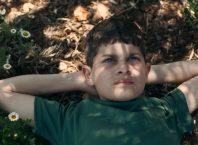“Khan Yunis – you reckon there’ll be a pub there?”
(The Lighthorsemen)
Australian soldiers found themselves in the Middle Eastern deserts during World War I, doing battle alongside the British in a foreign land where the sun is harsh and water scarce. Hence, I suppose, the search for a pub. The Lighthorsemen, directed by Simon Wincer, follows the experiences of a light horse unit involved in the 1917 Battle of Beer Sheva. The film is one of six feature films that will be shown in the 12th Australian Film Festival taking place at the Tel Aviv, Jerusalem and Haifa cinematheques from February 8 – 18, 2016, presented by the Australian Embassy in Israel and sponsored by AICE. The Lighthorsemen is based on a true story, and while it has its humorous and more tender moments, it depicts the somber realities of war with a focus on the relationships between those brothers at arms: acceptance is not immediate nor guaranteed, you have to prove yourself to your comrades, but mateship is forever.
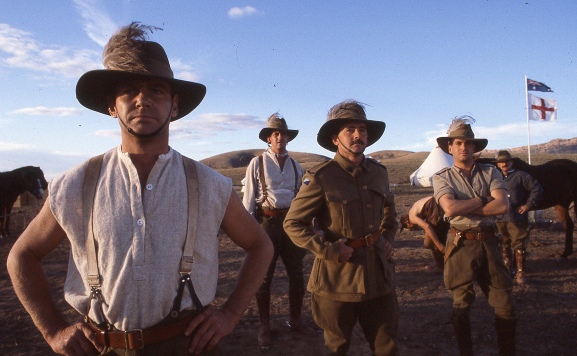
For those of you not up to speed on World War I era combat, light horse units, although they do indeed ride horses, are not exactly the same as Cavalry. While Cavalry regiments do battle whilst riding, the Light Horse units typically use the horses for transportation to the battle site, then dismount and commence to fight. Combat strategy of course, involves knowing what to expect, and on the other hand knowledge of one’s opponent’s expectations and the occasional foiling of aforementioned expectations. Just saying. The scenery looks remarkably accurate, yet the film was shot entirely in Victoria and Hawker, Australia. Mario Millo’s soundtrack is wonderfully rich with subtle nuance, taking the viewer from Australia to the Middle East.
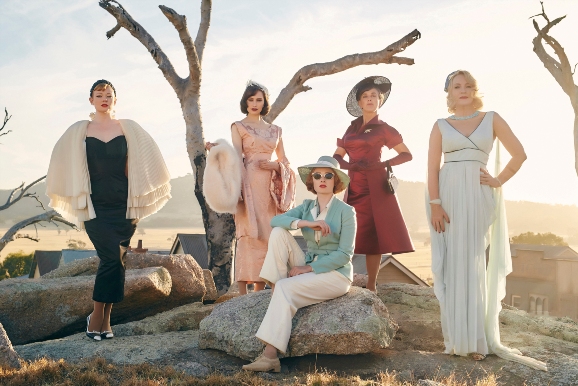
The festival’s opening film will be The Dressmaker (2015), a comedy directed by Jocelyn Moorhouse and starring Kate Winslet. The Daughter (2015), directed by Simon Stone, features a strong cast with Geoffrey Rush, Miranda Otto and Sam Neill, in a drama that focuses on a man returning home for his father’s wedding, who uncovers a secret with destructive potential.
Last Cab to Darwin (2015) caught my eye with an unusual narrative and a wonderful, understated performance by Michael Caton as Max, a taxi driver diagnosed with terminal cancer who decides to take advantage of the new voluntary euthanasia law in the Northern Territories and drives from Broken Hill (love the name), South Wales, all the way to Darwin. The ever-impressive Jacki Weaver is the pragmatic and PR savvy doctor, and Ningali Lawford-Wolf invites one’s empathy as the cantankerous, rough, and tough on the outside Polly, Max’s neighbor. Directed by Jeremy Sims, and based on the eponymous play (2003) by Reg Cribb (who co-authored the screenplay with Sims) this film is also based on a true story, that took place in the 1990s.
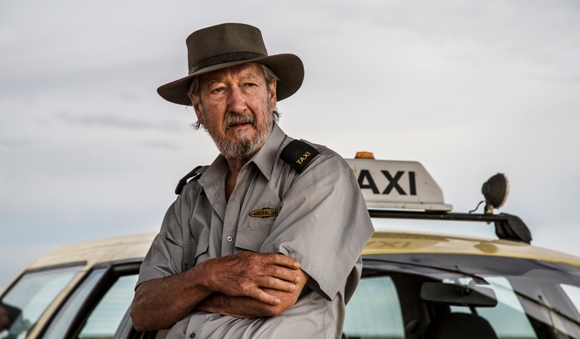
The charm of this film is the way it tells a moving, compassionate story without sliding into sentimentality. It’s hard to make a ‘feel good’ movie about death, but Last Cab to Darwin definitely succeeds. The film explores the question of quality of life from different angles, while at the same time, rolling along as a surprisingly fun (and funny) road trip adventure. Max is a rather gruff loner, but we know there’s more to him than meets the eye because he has excellent taste in music (So Into You – Atlanta Rhythm Section). https://youtu.be/QyIZ3pYKOQM The film offers insight into small town life in Australia, as well as the complex relationships between white fellas and black fellas.
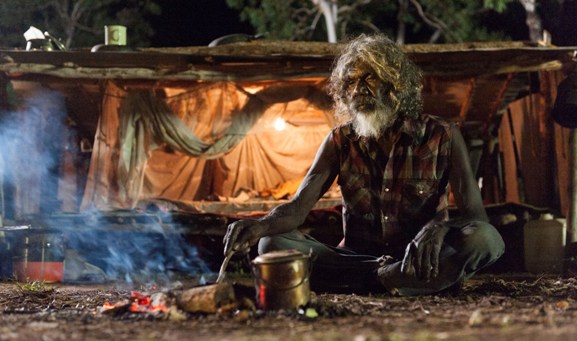
A large sign announcing The Liquor Act stands at the head of a long dirt road, designating the area ahead as ‘restricted’ – no liquor allowed. This is Charlie’s Country (2013). Directed by Rolf de Heer, the film draws closely on the life experiences of its star, David Gulpilil (who won Best Actor at Cannes for this role), to illuminate the lives of indigenous Australians. The images, sounds, and rhythms of daily life tell the story of Charlie, an older man who is stumbling around in life, nostalgic for past glory as a dancer, lost between two worlds. His wiry figure almost skeletal, his eyes watchful, he never gives up and never loses a wry sense of humor, even as he falls.
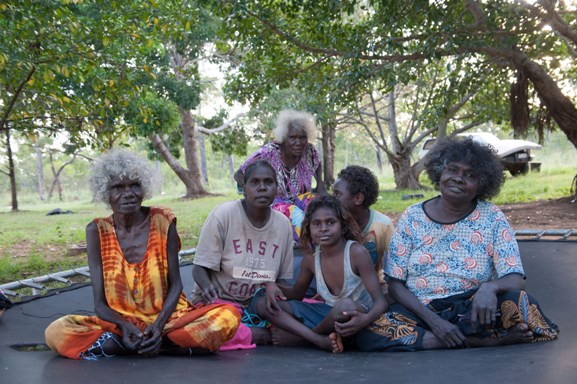
David Gulpilil is the narrator of Another Country (2015), a documentary which can be seen as the companion piece to Charlie’s Country. As Gulpilil says, the film is about “what happened to my culture when it was interrupted by your culture.” Director Molly Reynolds takes a look at Australia through the eyes of Gulpilil, a talented dancer and actor. Gulpilil was raised in the traditional culture and excelled in hunting, tracking and ceremonial dancing. His dancing led to a film career which began with Walkabout in 1971. But living between two cultures turned out to be a difficult task and Gulpilil had many personal conflicts, including time spent in jail. This journey led him to return to his culture and people, mentoring young people and teaching dance. Most relevant for the film, Gulpilil has become an activist for the Indigenous people of Australia, and the film goes a long way towards showing what life is like from their perspective.
Australian Film Festival
Screening dates and times may be found on the cinematheque websites:
Tel Aviv Cinematheque February 8 – 15, 2016
Jerusalem Cinematheque February 9 – 18, 2016
Haifa Cinematheque February 10 – 17, 2016





